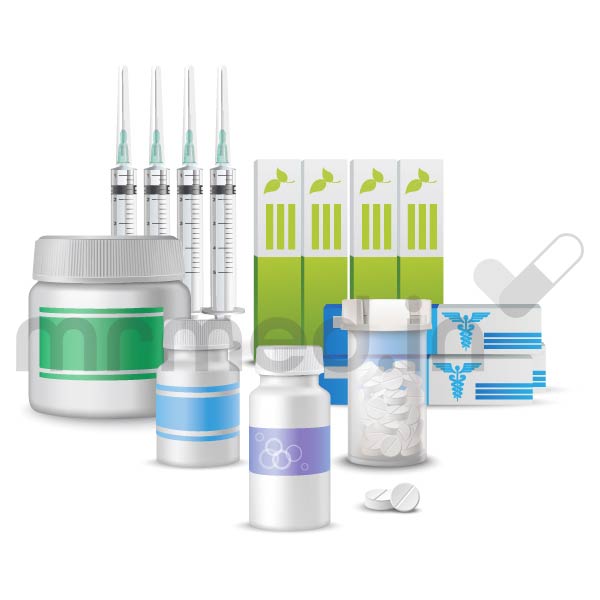All Substitutes
Loading...
Disclaimer
Did you find this information helpful?



Triple Antigen Injection
Prescription Required
Salt Composition : Diphtheria Toxoid,pertussis Toxoid,tetanus Toxoid
Manufacturer : SERUM INSTITUTE OF INDIA
Origin of Medicine : India
1 Vial(s)
Introduction to Triple Antigen Injection
The Triple Antigen Injection (Diphtheria toxoid, Pertussis toxoid, and Tetanus toxoid) protects individuals, especially children, from three serious diseases: diphtheria, pertussis (whooping cough), and tetanus.
This vaccine is part of routine childhood immunisation schedules, with booster doses recommended for ongoing protection. Triple Antigen Injection works by introducing inactivated toxins that cause these diseases, prompting the immune system to produce antibodies without causing illness. If the body encounters the actual bacteria later, the immune system can fight off the infection more effectively.
Common side effects include pain, redness, or swelling at the injection site, fever, irritability, fatigue, loss of appetite, and mild rash. While most side effects resolve on their own, certain precautions must be followed.
Do not administer Triple Antigen Injection to anyone with a known allergy to its components or a history of severe allergic reactions (anaphylaxis) to previous doses.
Use caution in individuals with a history of neurological disorders or severe reactions to the pertussis component. Avoid giving the vaccine during pregnancy unless absolutely necessary, as its safety has not been fully established.
The vaccine should also not be given during moderate or severe acute illness, and care is needed when administering it to premature infants due to the risk of apnea (temporary cessation of breathing).
Uses of Triple Antigen Injection
The uses of Triple Antigen Injection are:
- Protects individuals, particularly children, from three serious infectious diseases: diphtheria, pertussis (whooping cough), and tetanus.
- Administered as part of routine childhood vaccination schedules.
- Helps the body develop immunity against these diseases, which can cause severe complications or even death.
- Booster doses are recommended for continued protection throughout life.
Therapeutic Effects of Triple Antigen Injection
The Triple Antigen Injection introduces inactivated toxins to the body, prompting the immune system to produce antibodies. This process helps the body prepare to fight off the infection more effectively if it encounters the actual bacteria in the future without causing illness.
Interaction of Triple Antigen Injection with other drugs
It is important to inform your healthcare professional about all the medications you are taking, including prescription drugs, over-the-counter medications, nutritional supplements, and herbal products. Some medications may interact with Triple Antigen Injection, potentially affecting their effectiveness or causing side effects.
More Information about Triple Antigen Injection
- Keep out of reach of children and pets.
- Store in the original packaging to protect from moisture.
- Avoid direct sunlight
- Store Triple Antigen Injection at room temperature.
How to consume Triple Antigen Injection
A healthcare provider typically administers the Triple Antigen Injection as an intramuscular injection. For children, the vaccine is usually given as part of a series starting at 2 months of age, with additional booster doses as recommended by national immunisation schedules. Adults receive booster shots every 10 years to maintain immunity. The injection is usually given in the upper arm or thigh, depending on the patient’s age.
Safety Advices for Triple Antigen Injection
Pregnancy
It is unsafe to take Triple Antigen Injection during pregnancy. Please consult your healthcare provider if you have any concerns.
Breast Feeding
It is unsafe to take Triple Antigen Injection while breastfeeding. Please consult your healthcare provider if you have any concerns.

Lungs
If you have any pre-existing lung conditions, discuss them with your doctor before starting treatment with Triple Antigen Injection.

Liver
If you have any pre-existing lung conditions, discuss them with your doctor before starting treatment with Triple Antigen Injection.
Alcohol
It is unknown whether it is safe to consume alcohol after receiving a shot of Triple Antigen Injection. Please consult your healthcare provider if you have any concerns.
Driving
It is generally safe to drive after receiving a shot of Triple Antigen Injection. However, if you experience any side effects like dizziness or fatigue, it's best to avoid driving.
Side Effects of Triple Antigen Injection
Side effects are unwanted symptoms caused by medicines. Although all drugs can cause side effects, not everyone experiences them.
Common side effects of Triple Antigen Injection are
- Fever
- Pain, redness, or swelling at the injection site
- Loss of appetite
- Fatigue or tiredness
- Mild rash
- Irritability or fussiness (especially in children)
Serious side effects of Triple Antigen Injection are:
- High fever (above 40°C/104°F)
- Severe allergic reaction (anaphylaxis), causing difficulty breathing or swelling of the face and throat
- Seizures
- Difficulty swallowing or breathing
- Persistent crying or convulsions (in infants and young children)
Word of Advice
Triple Antigen Injection should not be given to individuals with known allergies to vaccine components, a history of severe allergic reactions, or certain neurological disorders. Caution is needed in cases of acute illness, weakened immune systems, or pregnancy. Special care should be taken with infants, especially preterm babies or those with a history of seizures. Always consult a healthcare provider before vaccination and ensure timely boosters for long-term immunity.
FAQs
Q 1. What are the uses of Triple Antigen Injection?
Triple Antigen Injection is used to protect against diphtheria, pertussis (whooping cough), and tetanus infections. It helps the body develop immunity to these serious diseases through routine vaccination, starting in early childhood.
Q 2. What is the schedule for Triple Antigen Injection?
The Triple Antigen Injection is usually given as a series of three doses, starting at 2 months of age, with additional doses at 4 months and 6 months. Booster shots are recommended at 18 months and during early childhood. Always follow your healthcare provider’s advice regarding the specific vaccination schedule.
Q 3. Is the Triple Antigen Injection safe for babies?
Yes, the Triple Antigen Injection is safe for babies when administered according to the recommended vaccination schedule. It is typically given in early childhood, starting at 2 months of age, to protect against these serious diseases. However, it is important to follow guidance from a doctor, especially if the baby has a history of severe reactions or medical conditions.
Q 4. Who should not use Triple Antigen Injection?
Triple Antigen Injection should not be used by individuals who are allergic to any component of the vaccine, including previous doses. It should also be avoided in individuals with severe neurological disorders, such as encephalopathy, or those who have had a severe allergic reaction (anaphylaxis) to a prior dose. Pregnant women should consult a healthcare provider before receiving the vaccine.
Q 5. How should I use Triple Antigen Injection?
Triple Antigen Injection should be administered as an intramuscular injection by a healthcare provider. It is typically given as part of a scheduled series of doses, starting in infancy, with booster shots given later in life as recommended.
Fact Box of Triple Antigen Injection
| Molecule name: Diphtheria toxoid, Pertussis toxoid and Tetanus toxoid | Therapeutic class: Vaccine, Inactivated (Toxoid) |
| Pharmacological class: Vaccine (Immunising Agent) | Indications: 1. Protects against diphtheria, pertussis, and tetanus. 2. Administered in routine childhood vaccinations. 3. Booster doses ensure ongoing protection. |
References
1. https://www.ncbi.nlm.nih.gov/books/NBK190028/
2. https://www.ncbi.nlm.nih.gov/books/NBK545173/
3. Liang JL, Tiwari T, Moro P, Messonnier NE, Reingold A, Sawyer M, Clark TA. Prevention of Pertussis, Tetanus, and Diphtheria with Vaccines in the United States: Recommendations of the Advisory Committee on Immunization Practices (ACIP). https://pmc.ncbi.nlm.nih.gov/articles/PMC5919600/
4. Harris G, Nolan T, Hartman L. Clinical signs associated with Triple Antigen (DTP) vaccination in infants. https://pubmed.ncbi.nlm.nih.gov/7669385/
Disclaimer
MrMed’s primary intention is to ensure that its consumers get accurate and trustworthy information that is reviewed by experts. The contents of this website are for informational purposes only. They are not intended to be a substitute for professional medical advice, diagnosis, or treatment. Please seek the advice of your doctor and discuss all your queries related to any disease or medicine. Do not disregard professional medical advice or delay in seeking it because of something you have read on MrMed. Our mission is to support, not replace, the doctor-patient relationship.